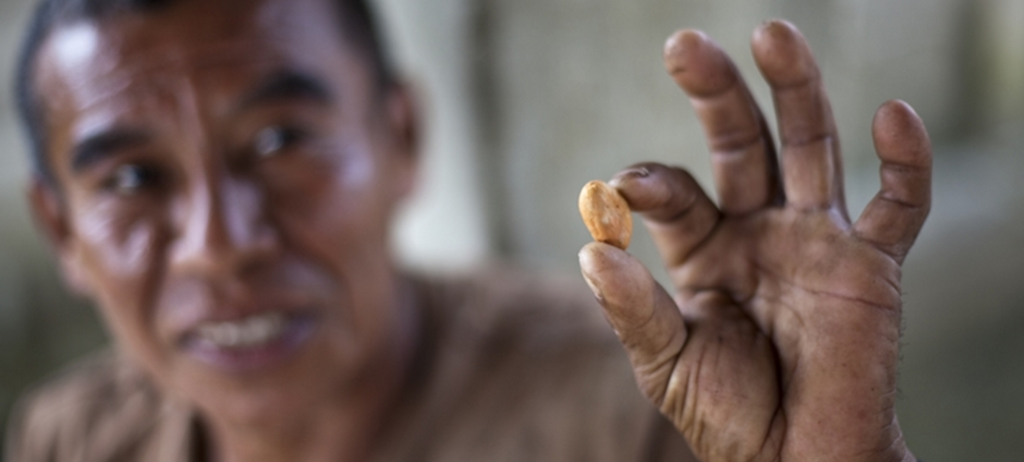To understand the impact that volatile commodity markets have on the “little guy,” just look at the Ivory Coast. The West African country is the world’s largest producer of cacao — the fruit that chocolate is made from. To help farmers stabilize income, the government sets a minimum price for purchasers: last year it was $1.88 a kilogram of cacao beans. But the markets had a different idea.
Higher-than-expected yields drove down futures prices for cleaned, roasted cacao beans on the London and New York markets. In turn, the Ivory Coast’s government slashed the guaranteed price to farmers by 36% — a decision that affects cacao farmers worldwide because the price is set every year in West Africa where 60% of the world’s cocoa is produced.
Here’s where Uncommon Cacao comes in. The Berkeley, Calif., social enterprise provides logistics and financial services to smallholder cacao farmers, connecting them with premium chocolate makers. It started in Belize in 2010 with a vision of making cacao trading more equitable for local farmers and has grown to a network of 2,600 farmers in five Latin American and Caribbean countries. Now it is looking to effect a systems change across the entire cocoa market through something the market currently lacks: farmer pricing transparency.
In its latest transparency report, Uncommon Cacao details the prices received by farmers in its network, where producers earned $1.30 a kilogram above the 2016 West Africa FarmGate price and 30 cents a kilogram above the average commodity price.
The report exposes several other issues in the cocoa value chain that affect farmers. One is the importance of cacao processing to farmer income. In Haiti, for instance, Uncommon Cacao partners with PISA, a cacao processor and farmer network that works with half of all farmers (and 70% of women farmers) in Uncommon Cacao’s network. Last year, the farmers received slightly below the West African FarmGate price for their crops — a legacy of Haiti’s notoriously opaque cacao market, where large export companies historically have bought “dried, unfermented, low quality cacao from smallholder farmers at prices below the commodity mark,” the report says.
Since PISA opened its own central processing plant, producers have seen earnings almost quadruple. What’s more, the report notes, they are “incentivized to protect their trees from the environmentally degrading charcoal market.” (An article by agricultural data company Gro Intelligence says that farming accounts for only 6.6% of the cocoa value chain; processing accounts for an additional 7.6% of the value.)
The report raises another issue that affects farmer income: the unreliability of product certification. Because existing certifications don’t verify quality or flavor of the beans, the report says, it leaves farmers at the mercy of commodity pricing because all cocoa beans are treated the same.
Finally, Uncommon Cacao highlights imbalances that disproportionately hurt farmers and create disincentives among manufacturers and retailers to push for change. “Our entire supply chain is only 10% or less of the price of a chocolate bar,” the report states. (Gro Intelligence’s data reveals that almost 80% of cocoa’s market value is in manufacturing and retail.) “We need consumers to pay more and retailers to get on board with margin transparency.”











